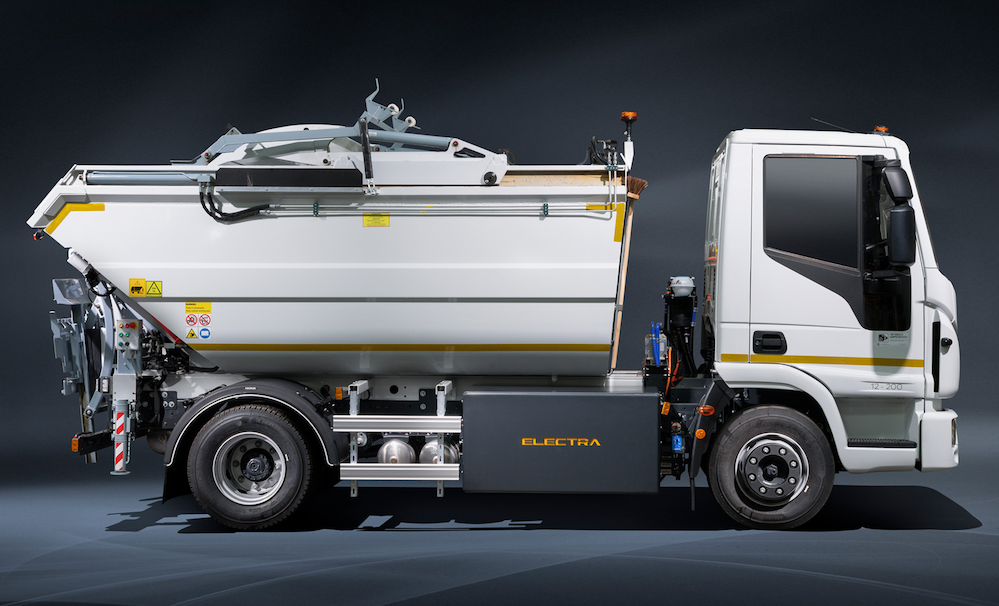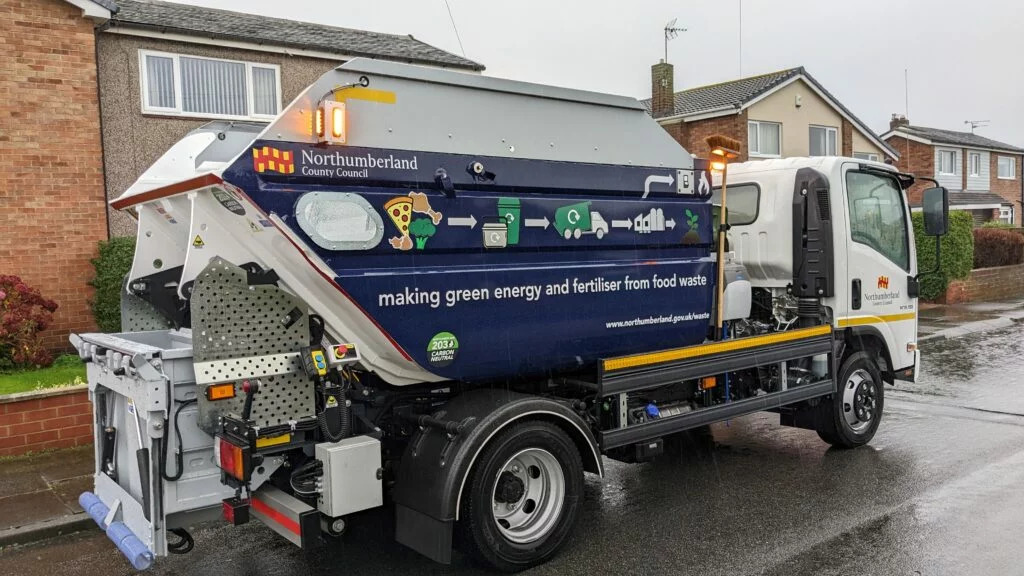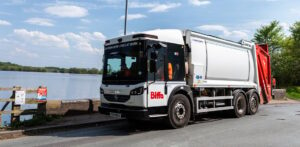As English waste collectors adapt to reforms in household and business collections, Chris Snelson, Fleet and Asset Director for NRG Riverside, talks to FVI about the impact this has had on the company’s waste operator customer base and the surge in demand for immediate, more flexible options.
Defra released its Simpler Recycling reform in October 2023. This mandates weekly household food waste collections across England by 2026, residual collections at least fortnightly, and the commitment to collect and recycle glass, metal, plastic, paper and card, food waste and garden waste, with exemptions to allow waste collectors to collect dry recyclables together.
Impact
While it is a positive step towards recycling uniformity across the country and meeting stringent EU goals, this reform comes at a cost to local authorities, the private sector, and the public.
On 9 January 2024, Defra released the indicative capital transitional costs for introducing weekly food waste collections to all authorities across England. This capital funding is intended to purchase food bins (including kitchen caddies, kerbside caddies and communal bins) and food waste collection vehicles. These transitional costs will be funded in FY 2023/24 for waste collection authorities that need to implement or extend a weekly food waste collection service, either partially or fully. Resource transitional funding will be provided for 2024/25 for those who need to implement a weekly food waste collection service partially or fully.
Demand
‘We’ve seen a surge in enquiries for new recycling collection and food waste vehicles,’ says Chris Snelson, Fleet and Asset Director for NRG Riverside. ‘There is concern in the industry as manufacturers’ build slots are filled before the potential 2026 cut-off for funding.’
To navigate the uncertainties in waste collection, authorities are developing innovative strategies, including recyclable tonnage contracts, anaerobic digestion agreements, and route optimisation. However, the absence of data and trials may make some hesitant to commit to specific vehicle applications. Long-term procurement decisions are further complicated by uncertainties in volume, tonnage, contamination levels, and authorities’ readiness for the transition to electric vehicles.
Opportunity
‘Flexi-hire and contract hire allow our customers to try new vehicles without commitment,’ says Chris. ‘The ability to change the gross vehicle weight, add recycling streams, or increase payload as required enables customers to remain flexible as they establish new or different recycling routes.’
This year alone for food waste, NRG Riverside expects imminent deliveries of 7.5-tonne and 11-tonne Isuzus with Terberg Orus 6 and 7 bodies, and Hillend Engineering Micro 5 and Micro XHDs. The business is also investing in a dozen 12.5-tonne electric food waste vehicles, both the Electra EuroCargo with Terberg Orus 7 and the Hillend Engineering Micro XHD 7m all available for flexible-hire and long-term hire.
‘Our specialist food waste fleet is just a tiny proportion of our more comprehensive offering, which includes the usual skips, hooks, walking floor trailers, and standard trade and split lift applications from 7.5 to 26 tonnes. We also have twin body, triple lift applications for on-site segregation, including 26-tonne Mercedes-Benz Econics with Dennis twin pack bodies, Terberg OmniDEL lift and 16-tonne DAF XB230 FAs with NTM K-2K bodies and bar lift.
Flexibility in action
Northumberland Council recently demonstrated the advantages of flexi-hire and its commitment to recycling efficiency with its fleet upgrade. The council’s initial flexi-hire of a 7.5-tonne Isuzu N75.150E Terberg Orus 6 provided insight and data into the longer-term needs of the authority. Based on this, Northumberland upgraded to a larger 11-tonne Isuzu F110.240E Terberg Orus 7 to enhance the council’s waste collection and payload capabilities.
Colin Curtis MCIWM, Commercial and Contracts Team at Northumberland Council, says: ‘The larger vehicle enables us to collect higher volumes of waste food more efficiently. NRG Riverside seamlessly upgraded our vehicle agreement, allowing us to finish the day’s collection round with the smaller vehicle before removing it from the site.’
Electric food waste collections
The transition to electric RCVs is happening for many local authorities simultaneously with the changes in food waste collections. While it might seem daunting, NRG’s Chris Snelson argues that switching to EVs can tie in with changes to recycling collections.
In 2023, Basildon Borough Council received the UK’s first fully EV food waste collection fleet. NRG Riverside supplied seven 12.5-tonne Electra eCargo vehicles equipped with Hillend Engineering Micro XHD bodies as part of an innovative contract-hire agreement that included full service and maintenance provisions.
The Electra eCargo vehicles have a payload of 4,900 kg and 140kWh battery capacity. With a 150 KW DC fast-charge capability, these electric trucks can be double-shifted, exceeding their range by over 100 miles in under an hour. A one-stop-shop service from NRG Riverside for designing and installing suitable charging infrastructure, ongoing preventative maintenance, and supplying suitable electric vehicles has resulted in a contract expected to save the authority 900,000kg of CO2 over the agreement term.
Chris adds: ‘We had the foresight early last year to order not just one, but 12 fully electric food waste vehicles for our flexi-hire fleet. We’re trying to make it as simple as possible for our customers to access vehicles they need.’
Visit NRG Riverside at Fleet Vision International – THE SHOW held at the Guildhall in London on April 11. Register here.






